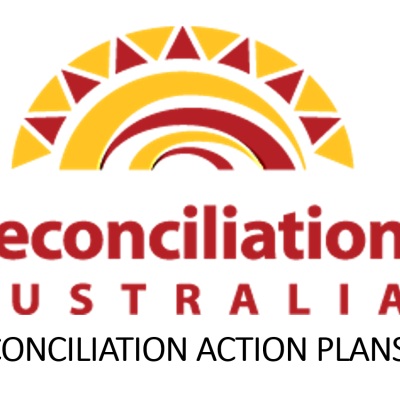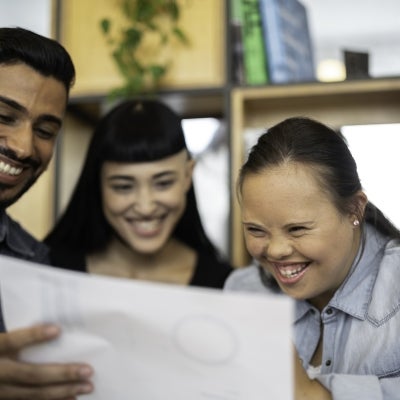Refine results
-
14 December 2012Book page
“Standing up for basic rights and freedoms”
These values provide the cornerstone of strong communities in which everyone, regardless of their background, can feel included and make a contribution. -
14 December 2012Book page
Commission Website: National Inquiry into Children in Immigration Detention
"We reaffirm our commitment to continue our struggle to eliminate all forms of violence and torture against children and to create a world that protects and fulfils the rights of all children." [1] -
14 December 2012Book page
Native Title Report 2005 : Introduction
This report is my second as the Aboriginal and Torres Strait Islander Social Justice Commissioner and marks a transition from a calendar year reporting period to a financial year to comply with s.46(1)(a) of the Human Rights and Equal Opportunity Commission Act (1986) (Cth). As the Native Title Report 2004 reported on the period January to December 2004, this report covers the period January to… -
28 October 2013Book page
1 Introduction
This report draws upon the extensive work the Australian Human Rights Commission has undertaken in the area of Australian law, policy and practice relating to asylum seekers, refugees and immigration detention. The Commission’s work has included conducting national inquiries, examining proposed legislation, monitoring and reporting on immigration detention, and investigating complaints from … -
Technology and Human Rights21 February 2024Submission
Human Rights Responses to Cybercrime
Learn more about how cybercrime can lead to human rights violations and how Australia can take a human-rights-centred approach. -
Children's Rights30 June 2014Speech
Surviving and thriving: addressing self-harm among children
Countering bullying and addressing self-harm challenges, a speech by Megan Mitchell, National Children's Commissioner. -
14 December 2012Book page
Photos of immigration detention facilities
The Commission conducts visits to Australia’s immigration detention facilities in order to monitor conditions in the facilities. The Commission’s aim is to ensure that conditions meet internationally accepted human rights standards. -
Aboriginal and Torres Strait Islander Social Justice9 April 2013Project

Reconciliation Action Plan 2012
Reconciliation is important to the Australian Human Rights Commission. First it enables us to build the cultural diversity of our organisation so we are better placed to empower Aboriginal and Torres Strait Islander peoples to understand and exercise their human rights; secondly as it is appropriate for us to model the importance of understanding and respect for the rights of Aboriginal and… -
Race Discrimination21 February 2017Speech
Free Speech Inquiry - Opening Statement (2017)
Parliamentary Joint Committee on Human Rights - Inquiry into Freedom of Speech, Public hearing 17 February 2017 -
14 December 2012Book page
1. Introduction
Please do not limit the audience of these reports to the Immigration Department and the Minister. We would like to urge you to educate the public to pass on the report to newspapers and the other electronic media so that the public can learn what is going on in the immigration detention camp, and I know that public opinion is shifting when they become aware of what is happening. Father, Port… -
31 January 2013Webpage
2005 Human Rights Medal and Awards Winners
The 2005 Medal and Awards presentation ceremony was held on 9 December 2005 at a luncheon at the Sheraton on the Park hotel in Sydney. The Human Rights Day address was delivered by Commission President, the Hon. John von Doussa QC and Julie McCrossin was the MC. The judges were: Jonathan Biggins, Justice Catherine Branson, David Cooper, Maurice Corcoran, Nicholas Cowdery QC, Eva Cox, Morag… -
Employers11 February 2015Webpage

A step-by-step guide to preventing discrimination in recruitment
Learn how to prevent discrimination in recruitment with this step-by-step guide. -
31 January 2013Webpage
2004 Human Rights Medal and Awards Winners
The 2004 Medal and Awards presentation ceremony was held on 10 December 2004 at a luncheon at the Sheraton on the Park hotel in Sydney. The Human Rights Day address was delivered by Commission President, the Hon. John von Doussa QC and Julie McCrossin was the MC. The judges were: Jonathan Biggins, Justice Catherine Branson, David Cooper, Maurice Corcoran, Nicholas Cowdery QC, Eva Cox, Morag… -
14 December 2012Book page
4. Australia's Human Rights Obligations
The purpose of this chapter is to explain the relevance of international human rights law to children in Australia's immigration detention centres and to provide a quick reference point on the fundamental human rights principles that have influenced the approach of this Inquiry. This chapter also explains the role of United Nations (UN) guidelines in the Inquiry's analysis of Australia's human… -
14 December 2012Book page
National Disability Strategy: Australian Human Rights Commission Submission
The Australian Human Rights and Commission (the Commission) makes this submission in response to the Australian Government's Discussion Paper on a National Disability Strategy. -
29 January 2013Book page
Appendix J – Examples of Best Practice from International Contexts
Introduction and Methodology As indicated in the body of the Report, the Review examined a range of international defence academies identified as bearing the greatest similarity to ADFA in terms of size, structure, or the wider contexts within which they functioned. [505] The Review conducted a broad ranging scan of Government and Defence Force inquiries, reports and evaluations; as well as… -
13 April 2015Book page
Our work plan for 2014-15
Priority: Human rights education and promotion We work to build awareness of rights and freedoms across the community, encouraging a culture of respect and responsibility that values dignity. To make this a reality, the Commission creates a range of community engagement and human rights education programs to engage with a broad cross-section of the community. We use tools such as social… -
14 December 2012Book page
Social Justice Report 2003: Chapter 2: Reconciliation and government accountability
In the Social Justice Report 1999, my first report as Social Justice Commissioner, I identified four key themes and challenges that existed in the approach of the federal government to Indigenous policy making at the time. These were moving beyond welfare dependency, accountability, participation and reconciliation.[1] Since the release of that report approximately four years ago, the key themes… -
Children's Rights14 December 2012Webpage
Children and young people
Most violence is perpetrated against children and young people by someone they know, often in the family. Addressing family violence raises multiple challenges due to its ‘private’ nature and the widespread recognition that the family is the natural environment for its members and should provide physical and emotional safety.[63] -
14 December 2012Book page
Native Title Report 2003 : Chapter 2 : Native Title Policy - State and Commonwealth profiles
Human rights principles require that Indigenous people's relationships to land, based on traditional laws and customs, be given legal recognition and protection. International legal principles also recognise that Indigenous peoples have economic, social and cultural human rights. Native title, as it is constructed through the Australian legal system, has a limited capacity to meet these human…
Pagination
- First page « First
- Previous page ‹ Previous
- …
- 36
- 37
- 38
- 39
- Current page 40
- 41
- 42
- 43
- 44
- …
- Next page Next ›
- Last page Last »
